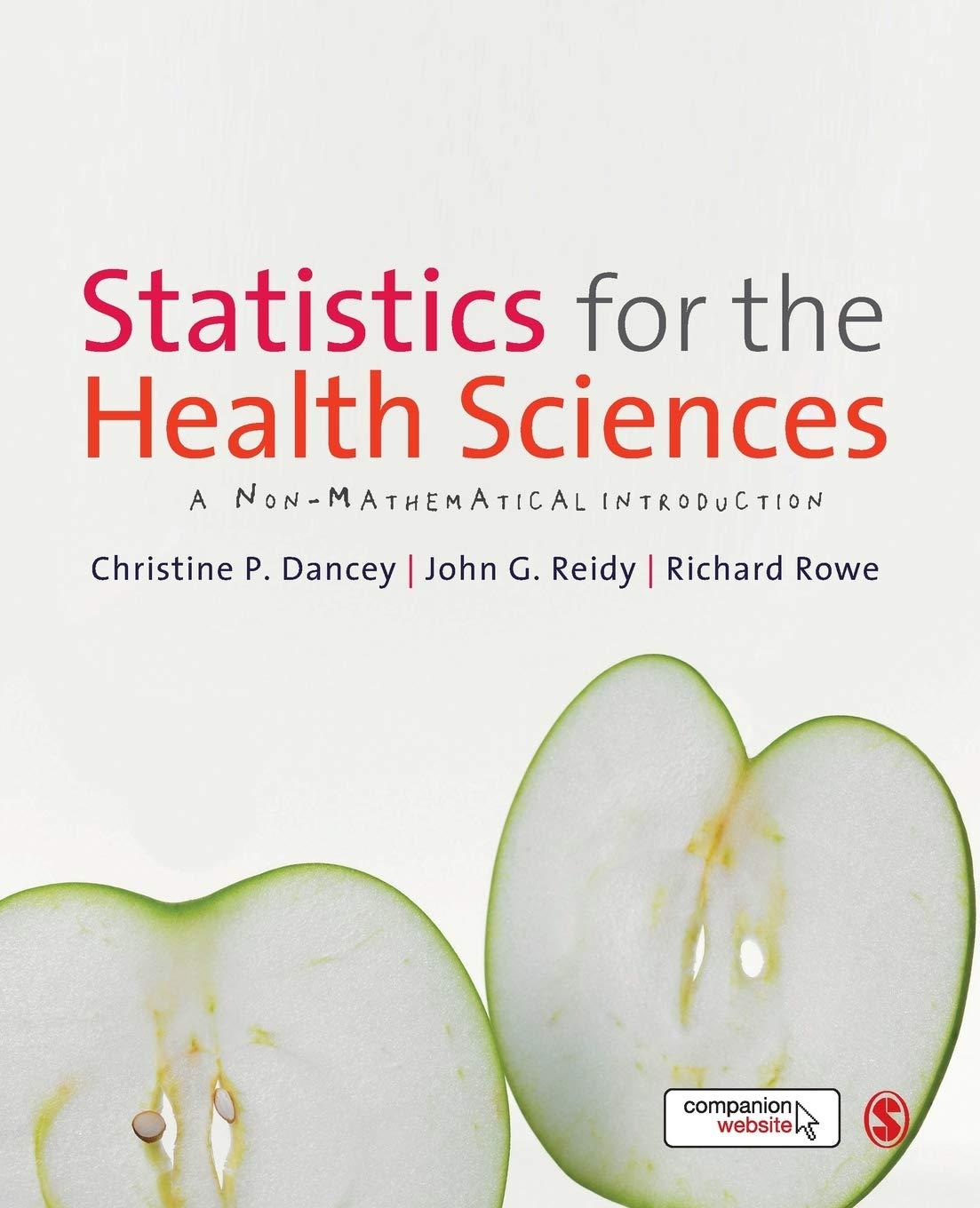Look at the following text from Dingle and King (2009). They were looking at the impact of
Question:
Look at the following text from Dingle and King (2009). They were looking at the impact of several variables on the outcome from a private hospital drug and alcohol treatment programme. As part of that study, they carried out a standard multiple regression to predict follow up % days abstinent (from substance use) from the following scores: depression, anxiety, stress, number of co-occurring mental disorders at admission (0 to 4).
They say ‘The overall regression model was highly significant (R2 = .42; F = 12.1, p < .001). However, the number of co-morbid diagnoses patients were given at admission was not related to follow-up abstinence. Again, only … depression symptoms were a significant univariate predictor in the model (β = .713, t = 6.52, p < .001).’ (p. 19).
8. As scores on depression rises by one standard deviation, the % days abstinent:
a) Increases by .71 of a standard deviation
b) Decreases by 6.52 standard deviations
c) Decreases by .71 of a standard deviation
d) Decreases by 6.52 standard deviations
Step by Step Answer:

Statistics For The Health Sciences
ISBN: 9781849203364
1st Edition
Authors: Christine Dancey, John Reidy, Richard Rowe






